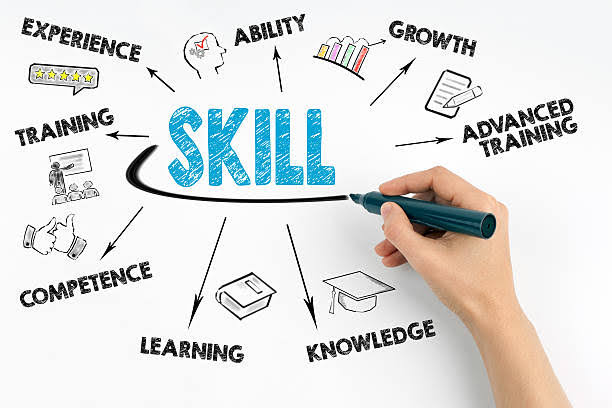WHAT DOES IT MEAN TO GET A SKILL?
By Eniola Olatunji
A skill is an acquired ability to carry out a task successfully. It is a form of activity that calls for ongoing practice. Indeed describes skill as a word that covers the knowledge, and abilities needed to carry out operational activities.
In the Nigerian context, a skill is an activity you learn to be able to earn money. This can easily be blamed on the distance between classroom knowledge and real-world application. Quite often, people earn a degree – theoretical knowledge, often called book knowledge - and still, go ahead to learn a skill – practical knowledge. To some, the skill is Plan B if the degree does not earn money. This Plan B as a side hustle is why many Nigerian students learn a skill before they get into school and others utilize strike periods, and holidays for this.
Over the last decade, there has been a huge shift in the type of skills people learn. In the early 2000s, GSM and computers, were introduced to Nigeria. This informed the type of skills people got. For instance, “computer training” was a popular training many were involved in. Cybercafés were booming, as people were just learning to use computers, browse, print, photocopy, etc. Although some of these skills are still being taught (e.g., printing), their popularity has drastically reduced. Nowadays, people can share PDFs and can browse on their phones instead of going to cafés. Before the advent of digitization, the analog nature of life popularized skills like tailoring, carpentry, mechanic, etc. In Nigeria, it was very common to study sociology in the university while learning hair dressing on the side. It is also very common to have a degree in say laboratory science and be a full time make up artist out of school, but an increasingly digitized society is changing what it means to learn a skill.
Skills like UI/UX design, Frontend and Backend Development, Data Analysis, Artificial Intelligence (AI) and Cloud Computing, are in vogue. Other career options like content creation, social media management, photography, and graphics design are popular. A world more digitalized than ever has made this necessary.
The change in the type of skills currently acquired has come with a change in modus operandi. Analogue skills were often acquired under an apprenticeship system. That is, the parent or guardian of the apprentice would formally hand their ward over to a master to learn for a few years. After these years have elapsed a ceremony, “Freedom”, is organized to mark the completion of their tutelage.
While such culture is still being practiced in many parts of Nigeria, the system is changing. Now, one does not need to meet the master/teacher physically. Skills can be learned virtually through Youtube videos, online classes, and other learning apps like Udemy and Coursera. Some of these virtual learning methods are paid for while some are not. Some issue certificates after completing the course while others do not.
Irrespective of the change in type of skill or mode of acquisition, the motivation for learning these skills remains the same for most Nigerians. An ever-changing work dynamic, widespread unemployment, and international competition is pushing everyone to get a skill quite early in life.
At ZODML, self-learning is a core focus. Visit us at 196, Awolowo Road, Ikoyi and borrow a book today.
Eniola Olatunji is a law
student at the University
of Ibadan. He enjoys
researching into new
areas of life, reading
comics and writing plays.





